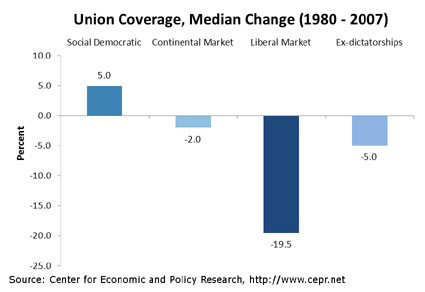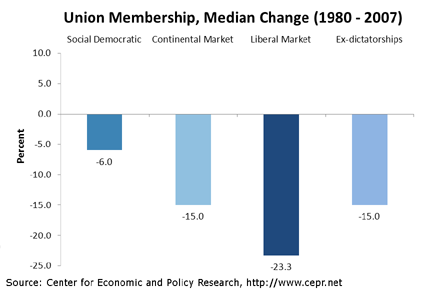November 2011, John Schmitt and Alexandra Mitukiewicz
Researchers have offered several explanations for the decline in unionization. Many emphasize that “globalization” and the technological advances embodied in the “new economy” have made unions obsolete. However, if the decline in unionization is the inevitable response to the twin forces of globalization and technology, then we would expect unionization rates to follow a similar path in countries subjected to roughly similar levels of globalization and technology.
This paper looks at union membership and coverage for 21 rich economies, including the United States, and finds over the last five decades a wide range of trends in union membership and collective bargaining. The national political environment, not globalization or technology, is the most important factor driving long-run changes in unionization rates in the United States.

